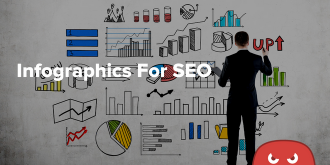Quick Links
During any impending economic downturn, businesses, just like everyone else, cut back on spending due to the uncertainty of the economy.
Many times, the digital marketing budget is the first to go for businesses when sales are slow.
Since SEO and brand awareness is always a long-term strategy, scaling back on link-building and content creation is an easy short-term cost to cut without seeing sales suffer immediately.
But is this actually a smart move?
No, it’s not.
Do digital marketing efforts like SEO and PPC still work in a recession?
Yes, SEO and PPC advertising work well for many businesses during a recession. Especially when you compare them to traditional marketing strategies.
With the impending 2022 recession, you should focus on it sooner than later.
What we know about marketing in past recessions
According to a MarketSense study from the 1990’s recession, balanced long-term branding with promotion for short-term sales is the best strategy for dealing with a recession.
They found that brands like Jif experienced sales growth of 57% after increasing their advertising during the recession.
Obviously, a lot has changed with marketing strategy since 1990 but consumers still react the same in a recession. When it comes to buying, brand awareness is more important than it ever has been. So the same logic can be applied today.
While the short-term impact of cutting back SEO budget isn’t too noticeable, you could be setting yourself up for long-term failure during a recession in today’s world.
A study from the University of Pennsylvania states:
“Research shows that companies that consistently advertise even during recessions perform better in the long run.”
As of writing this in June 2022, many companies are already reassessing their SEO, or Search Engine Optimization, strategy in time for the upcoming recession.
Why SEO during a recession?
The answer to the question “Is SEO still a good marketing strategy in a recession?” is a resounding yes! Here’s why:
- A well-thought-out SEO campaign can help you reach new audiences and grow your business.
- SEO can help you improve your website so that it converts more visitors into customers or leads.
- SEO can help you lower your other marketing costs by helping you get more organic traffic from Google and other search engines.
- SEO can help you weather the storm during a recession by helping you keep your business visible online and driving traffic to your website. Keep in mind that Brand awareness is KEY in a recession.
If your SEO is so bad that you don’t even show up when someone searches for your company name, that’s gonna be a problem.
Especially if you pursue a location-based SEO approach.
With an economic recession on the horizon, many have been wondering whether or not SEO is still a viable marketing strategy.
After all, it takes a lot of time and resources to see the benefits of SEO.
Let’s explore further why SEO services and other forms of digital marketing are still a reasonable strategy during a recession and provide explanations for how it can be leveraged in terms of ROI.
What we learned about digital marketing from the COVID pandemic and past recessions
The pandemic of 2020 caused a huge spike in demand for SEO services professionals in many industries.
Why?
In a word, opportunity.
More specifically, a change in consumer behavior. Businesses realized they need to invest in SEO to adapt to the growing organic search market.
Let’s look at customer behavior more to understand why:
This graphic from Harvard Business Review shows the changing consumer behavior in a recession based on 4 segments.
Think of your customers in these 4 segments:
- Slam on the breaks – will stop spending and change habits the fastest
- Pained-but-patient – suffering but less likely to cut back than the previous group.
- Comfortably well-off – might change some behaviors
- Live-for-today – behaviors change the least because they have a disposable income and live in the moment.
Regardless of their group, each consumer has four categories for products and services:
- Essentials – will continue to buy
- Treats – indulgences whose immediate purchase is considered justifiable
- Postpondables – desired products or services that can be postponed
- Expendables – perceived as unnecessary
In a recession, all of these groups except for the “live-for-today” segment will cut back significantly and reevaluate their priorities.
This means that things that were considered “essential” before the recession might become treats or postpondables during the recession.
That’s why Business owners need to keep in mind that loyal customers and people aware of your brand will be the source of cash flow during a recession. That means that marketing isn’t really “optional” – it’s a low-cost necessity to bring in that revenue from key customers.
How does this apply to SEO in 2022?
With digital marketing, your competitors will seize the opportunity if you decrease your organic presence in search results.
Especially in highly competitive industries.
In 2020, we also learned a lot about how business owners make marketing decisions based on perceived consumer behavior.
Search engines still work the same in a recession. Competition does not stop just because people are spending less. Organic search results are constantly being updated and putting a halt to your SEO strategies now can have detrimental effects in the coming months.
And if you can get a head while the competition re-evaluates or cuts back their marketing, why wouldn’t you?
Despite this, many owners completely paused their SEO and PPC (paid ads) spending when the pandemic first hit. This heavily impacts their future success as competitors seize the opportunity to get ahead.
Bad idea.
In previous recessions, we know that those who come out on top actually increase their marketing budgets when sales are slow.
For example, Pizza Hut and Taco Bell increased sales by 61% and 40% respectively when McDonalds decided to drop its advertising and promotion budget during the 1990-91 recession.
Businesses who continue to invest in marketing during a recession notoriously come out ahead of businesses who cut their marketing spend because of a recession.
In other words, a good long-term SEO strategy works wonders during a recession and after – even if sales are slow.
SEO can’t be turned off immediately. That’s why it’s such a good long-term investment to prepare most companies for difficult times.
The fewer sales being made, the more important it is to show up at the VERY top of search results. The CTR or (click-through rate) increases.
The #1 organic position has a CTR of 31.73%. This decreases significantly the lower that you rank.
Why SEO might be more important during a recession
If your industry might be suffering due to a recession, you can see why that #1 spot is even MORE vital so that you can capture the people searching for your target keywords.
Let me show you…
1) The web will continue to be the best sales channel
People spend less in a recession, everyone knows that.
But the places they DO still spend will most likely be online or at least found online.
If anything, online searches increase in a recession for most industries. People will just be buying less.
For example, the recession caused by COVID in February 2020 caused some businesses to see a crazy amount of new online traffic.
And this isn’t going away…
In a modern economic uncertainty, people will go out less and spend more time online. Their purchasing decisions will reflect this.
2) Local Businesses need to have an online presence to get support from their community
People are searching for local businesses online more since the pandemic.
They want to support their communities.
That makes Local SEO a worthwhile investment for small businesses.
On top of that, people are shopping for products online more since the pandemic and many people have gotten used to it.
This graph from Trade.gov shows the eCommerce Share of Total Global Retail Sales from 2015-2024.
The upward trend of e-retail sales from 2019 to 2020 due to the pandemic boosted the projected growth through 2024 for retail e-commerce sales worldwide.
Search engine results pages became the new storefront for tons of businesses and this behavior doesn’t seem to be changing.
This Accenture survey found that 84% of participants plan to continue shopping in local stores or buying more local products than before the pandemic once it’s over.
3) Now is the best time to re-evaluate your marketing budget
The best time to revisit your marketing campaigns is before a recession, not during.
Many people are looking for low-cost ways to practice SEO and end up cutting corners and wasting both time and money.
If things aren’t working, it’s best to adjust your budget and re-strategize NOW rather than later when it’s too late. Due diligence is everything.
Every well-rounded business takes advantage of both PPC (paid ads) and SEO for leads, but you never know if something could be working better.
That way, you can start to reach new customers and are set up for long-term success when the economy bounces back.
If you’re dragging your feet, the time to act is now. If you don’t get started, you’ll never be able to grow your business through organic and paid search results.
Where do I start with SEO?
Here are a few tips for how to implement an effective SEO strategy:
- Conduct keyword research to identify the best keywords to target.
- Optimize your website content for those keywords.
- Build links to your website from high-quality websites.
- Monitor your website’s search engine rankings regularly.
Keyword research
You need to start with software to do research on what you are already ranking for and what your direct competitors are ranking for on the major search engines like Google.
This will make sure you are actually targeting search terms that people who want to find your business are using.
You can use paid tools like Ahrefs or SEMrush.
Optimize content
Once you identify those keywords, you need to make sure you set up your website in a way that Google knows you are the best answer to those searches.
This is known as on-page SEO.
For example, if you’re a tennis coach in Tampa, Florida, you need to use those keywords on your website to start ranking for those searches.
That includes the H1’s, Title tags, and meta descriptions for your individual URL. Otherwise, how will Google determine what your website is about and rank you for your keyword targets?
Build links
Link building, back-linking, building links. Whatever you call it, you need to build high-quality backlinks to your site’s pages. To this day, it’s one of the most influential factors in Google’s algorithm.
Just look at this study from Ahrefs, one of the biggest SEO software companies.
The number of referring domains a website has a pretty high correlation to how well it ranks.
Monitor your SERP’s
After building links consistently for a few months, monitor how your organic traffic has changed and, more specifically, take a look at how you are ranking on the actual Search Engine Result Pages.
You can check your current website traffic with our free tool
SEO takes time and money but we’ve got it down to a science. If you don’t want to burn cash with trial and error by doing this yourself, I’d recommend speaking to one of our SEO experts if you’re interested in a custom SEO plan for your business.
…and stop letting potential customers slip away.
Conclusion
Yes, people DO spend less in a recession, but that just means you need to target them more effectively, not cut back.
At the end of the day, your competition will NOT stop.
Does SEO still work in a recession?
Yes, it does. And the data shows that SEO strategy can be even MORE important during uncertain times.
Search Engine Optimization is ever-changing, but it’s not going anywhere.
If you choose to cut back or stay stagnant in your digital marketing strategy, that gives an opportunity for your competitors.
SEO isn’t rocket science, even though it can seem like it. It just requires a bit of investment and some consistent methodology. Which can be hard for a small business.
Case Studies
HOTH X is our managed service. It starts at $500/month because we know that’s the minimum that it takes to see real results for businesses over the long term with us.
If you’re interested in what types of businesses we’ve helped in the past, check out these case studies:
For one of our clients in the travel and transportation industry, we saw a 10x growth in organic traffic after four months of a HOTH X 2500 package:
Just look at these keyword/traffic increases:
Here is one e-commerce client we had on a HOTH X 1000 :
After 6 months, we increased their traffic by 2400%
As I said, it’s an investment. SEO isn’t cheap if you want a managed strategy that will actually work.
And many full-service marketing agencies offering “SEO” aren’t actually building or earning backlinks/creating content.
Smaller businesses don’t know what to look for when it comes to SEO reporting so big companies just tack it on as an upsell and don’t actually do any SEO work.
With HOTH X, you receive transparent reporting and get to see EXACTLY how your budget is being spent each month.
Here are a few testimonials from clients who started in the past year:
“I had been getting frustrated with my SEO. I knew I should be ranking for keywords, but there seemed to be a wall that I just couldn’t get past. After hiring HOTH X, they created a customized SEO strategy and implemented it on my website. Within 4 months of their service, I started ranking on page one for the keyword I wanted (and many others). Thank you so much HOTH X!” – Insurance agency niche
“We’ve been working with HOTH X for a few months now and we are very happy. We are getting better rankings on Google, it’s easier for us to be found by our customers and we have more organic traffic coming to the site. I am really glad we made the decision to work with them.” – Established Ecommerce store
“I was a little skeptical about getting an SEO service when I first found out about HOTH X but I decided to give it a try. They were able to make my website rank higher for certain keywords and also helped me get more organic traffic.” – Plumbing industry
If you want organic search results, SEO works. Use your marketing dollars to build a quality website and invest in SEO.
If you are still dragging your feet when it comes SEOing your website, just know that you’ll never get found if you don’t start somewhere.
As my grandma used to say, “cook or get out of the kitchen!”
Get customized help from our team of SEO experts today and schedule a call.


















Thank you for sharing your ideas. More informative
great knowledge,thanks
Hello, I read your article, it is very informative, it helped me to improve myself, I started to follow your website. I wish you good work
YOU HAVE COVER UNIQUE TOPIC , LIKE IT
Thank you for this vital blog post. As you point out, the experiences that comprise the customer’s journey are more important than ever in the new hyper-connected world enabled by social media. Brands can now use insights from social datasets to fuel their decisions to improve the customer experience, help define content type and channel, and surface opportunities to remove barriers in the path to purchase – don’t you think it’s a great time to be in marketing?
Fuel your growth and surpass your competition with Frmroots’ result-driven SEO services, the key to unlocking your website’s full potential.
Hello, I read your article and found it to be really interesting. I also read your other blogs (Guide to Content Optimization and SEM Guide) and appreciate you sharing your thoughts.